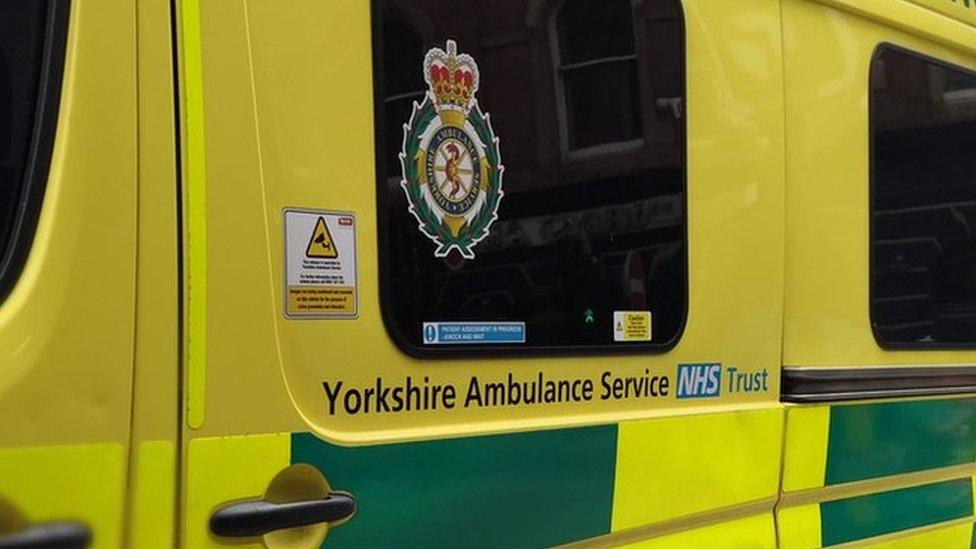Yorkshire Ambulance Service staff strike over pay and conditions
- Published
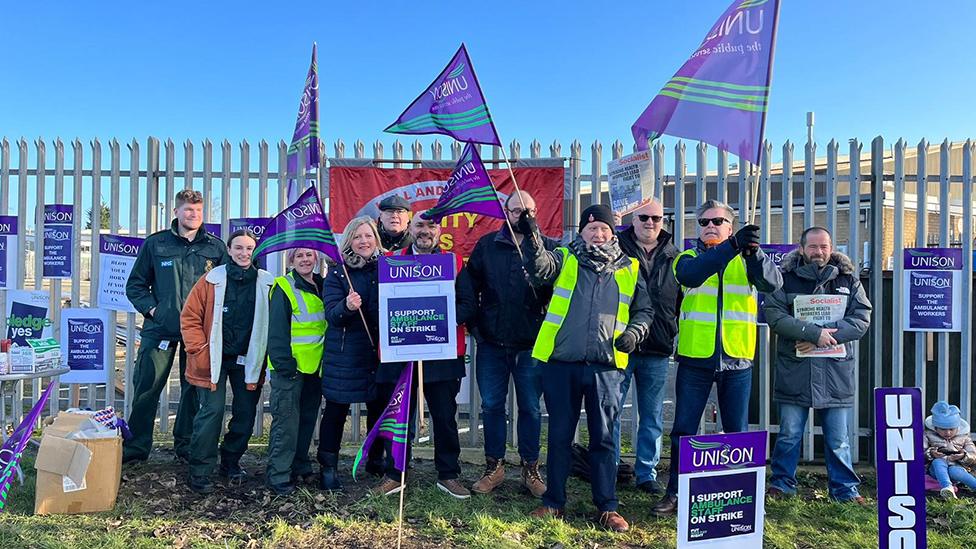
Pickets were outside ambulance stations across Yorkshire including Sutton Fields in Hull
Striking ambulance workers have formed picket lines across Yorkshire in a dispute over pay and working conditions.
Members of the Unison and GMB unions are taking action after rejecting the government's 4% pay offer.
Yorkshire Ambulance Service said there would be "significant disruption", but people with life-threatening illnesses would still get an ambulance.
Health Secretary Steve Barclay said the strike was an "unnecessary disruption".
Rachel Harrison, GMB National Secretary, said the industrial action was in response to the "NHS's crushing recruitment and retention crisis" and the government's 4% pay offer which was a "massive real-terms pay cut".
Paramedic Chris Whitehead, who joined the picket line outside Hoyland Ambulance Station in Barnsley, said the dispute was not just about pay.
"When I started this job 14 years ago I could respond to 10 emergencies in a shift," he said.
"Now I'm lucky if I can do two. We're often queueing outside hospitals for hours."
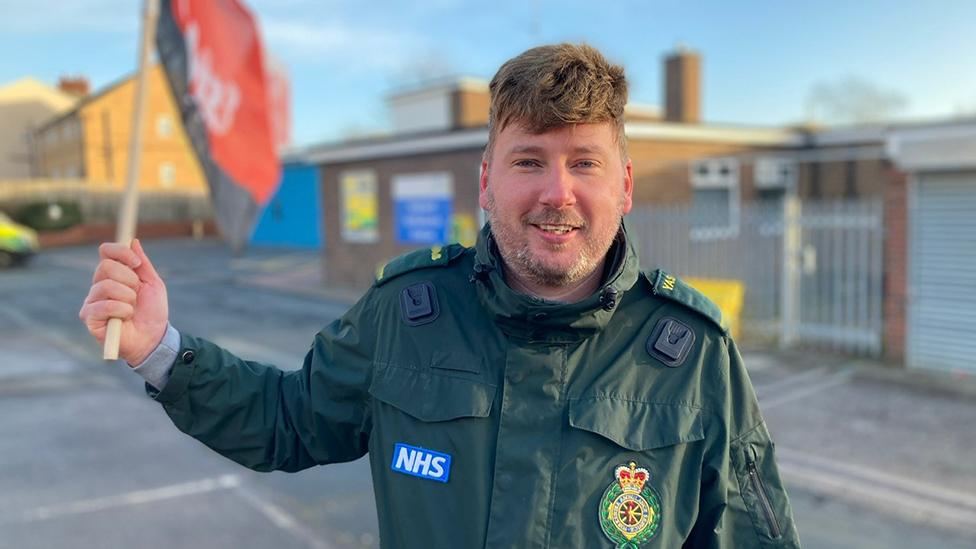
Paramedic Chris Whitehead from Barnsley said waiting times outside hospitals had increased
In Sheffield, paramedic and Unison representative Dan Cooper described morale among ambulance staff as "absolutely horrendous", saying that newly qualified paramedics were already looking for other jobs outside the service.
"We've taken critically ill patients to A&E, we wait in the queues for hours and hours and you can see them deteriorating minute by minute and getting worse," he said.
"Sometimes, unfortunately, they are dying in the queue and there is nothing we can do."
Mr Cooper said taking industrial action was a "last resort".
"We don't want to do it, but it's our only means of exerting some kind of force to get them to do the right thing which is negotiating."
He added that striking paramedics were leaving the picket line to attend high-priority 999 calls.
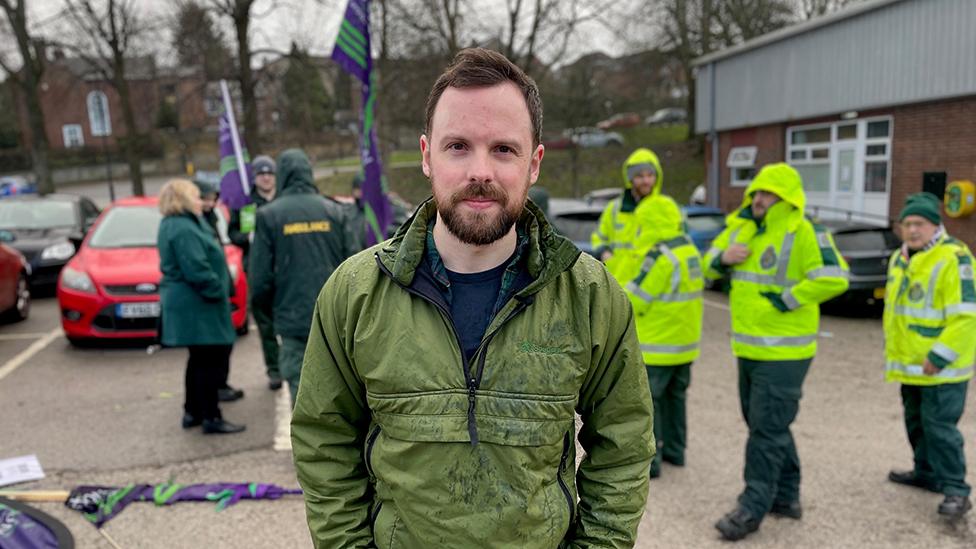
Paramedic and Unison representative Dan Cooper described ambulance staff morale as "horrendous"
Almost 1,500 GMB members are striking for 24 hours from midnight to midnight.
There was previous industrial action on 21 December.
Ms Harrison said ministers had "dithered and postured, wasting valuable time" in negotiating a settlement.
"The public expects the government to treat this dispute seriously - it's time they got on with it," she said.
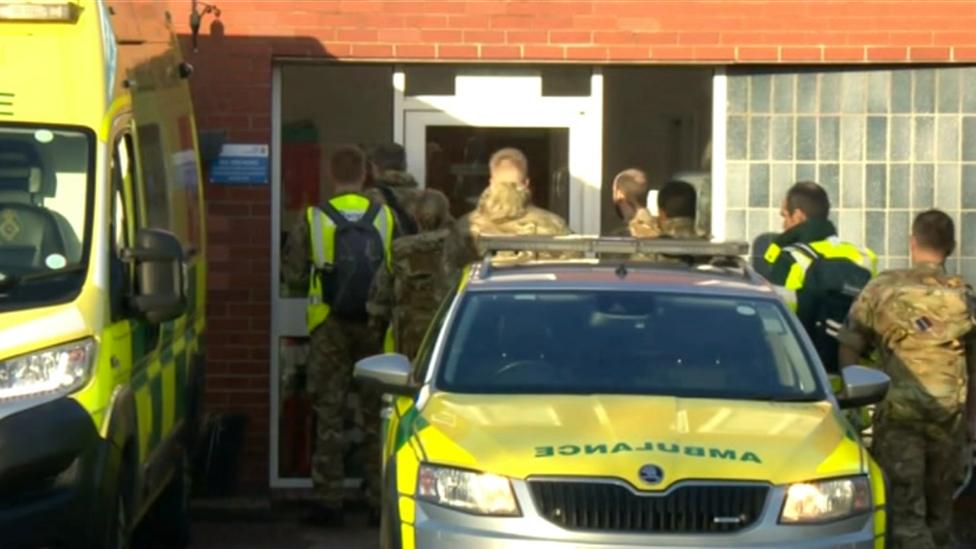
Health Secretary Steve Barclay said government contingency plans included using military personnel, seen here at an ambulance station in Hull
Hull University Teaching Hospitals NHS Trust said it had tried to discharge as many patients as possible in advance of the strike and was stepping up efforts to take people off ambulances as soon as possible.
On a picket line at the city's Sutton Fields ambulance station, members of the public dropped off drinks and drivers hooted horns as they passed.
Emergency care worker and Unison representative Wendy Smith said crews were constantly working up to 18-hour days.
"Paramedics and all staff are leaving in droves," she said.
"So obviously we are short of staff now."
Mr Barclay said the government had contingency plans in place, including support from the military.
"Today's ambulance strike is an unwelcome return to unnecessary disruption and comes at a time when the NHS is already under huge pressure from Covid and flu," he said.
Rishi Sunak has insisted he is open to constructive discussions with unions. He told MPs during Prime Minister's Questions that he wants to work with ambulance workers and nurses to end the current wave of strikes over pay.

Follow BBC Yorkshire on Facebook, external, Twitter, external and Instagram, external. Send your story ideas to yorkslincs.news@bbc.co.uk, external.
Related topics
- Published10 January 2023
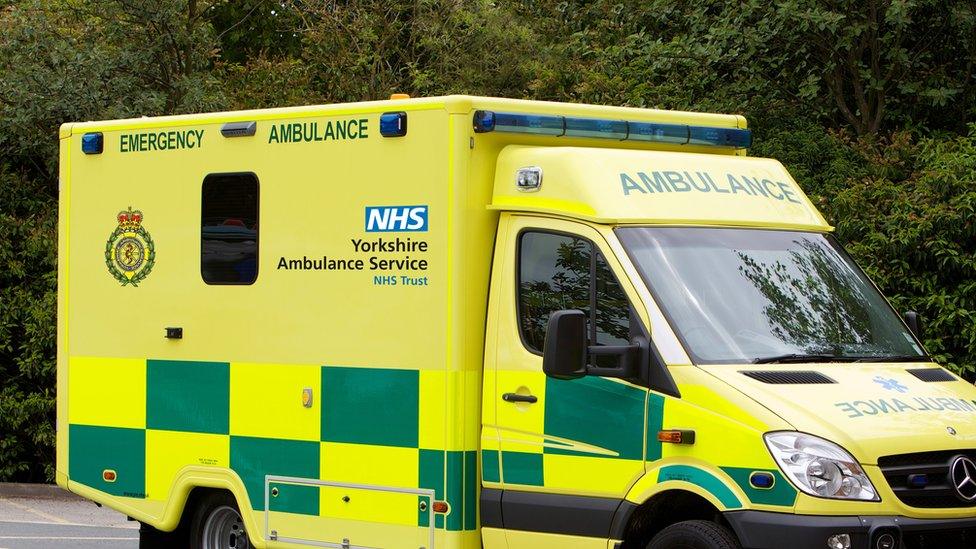
- Published21 December 2022
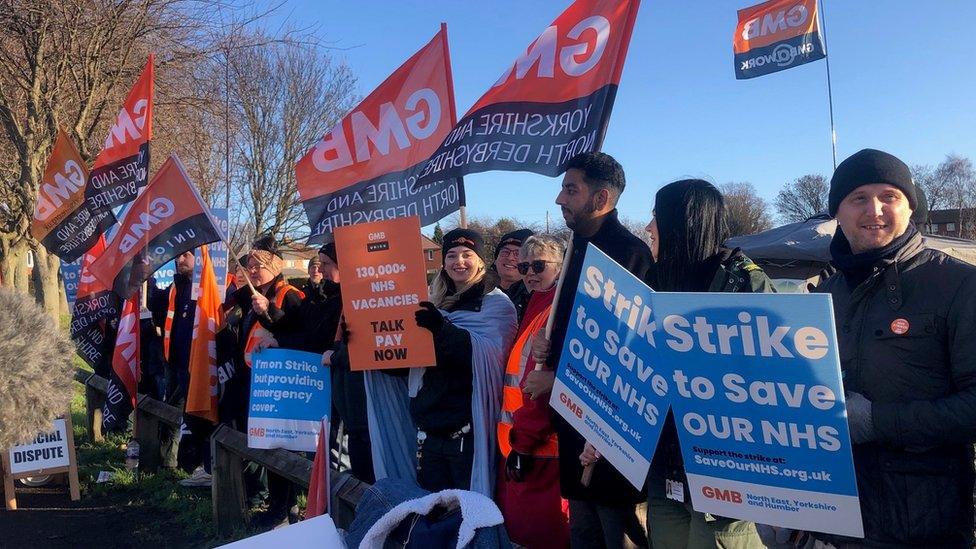
- Published21 December 2022
